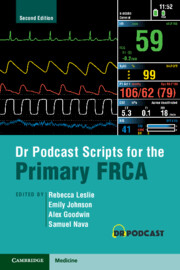Refine search
Actions for selected content:
3 results

Dr Podcast Scripts for the Primary FRCA
-
- Published online:
- 19 June 2025
- Print publication:
- 03 July 2025
Chapter 12 - Some Socratic Aspects of Wittgenstein’s Conception of Philosophy
-
-
- Book:
- Wittgenstein on Philosophy, Objectivity, and Meaning
- Published online:
- 15 August 2019
- Print publication:
- 15 August 2019, pp 231-264
-
- Chapter
- Export citation
Examining Ethics: Developing a Comprehensive Exam for a Bioethics Master’s Program
-
- Journal:
- Cambridge Quarterly of Healthcare Ethics / Volume 23 / Issue 4 / October 2014
- Published online by Cambridge University Press:
- 17 July 2014, pp. 461-471
-
- Article
- Export citation
